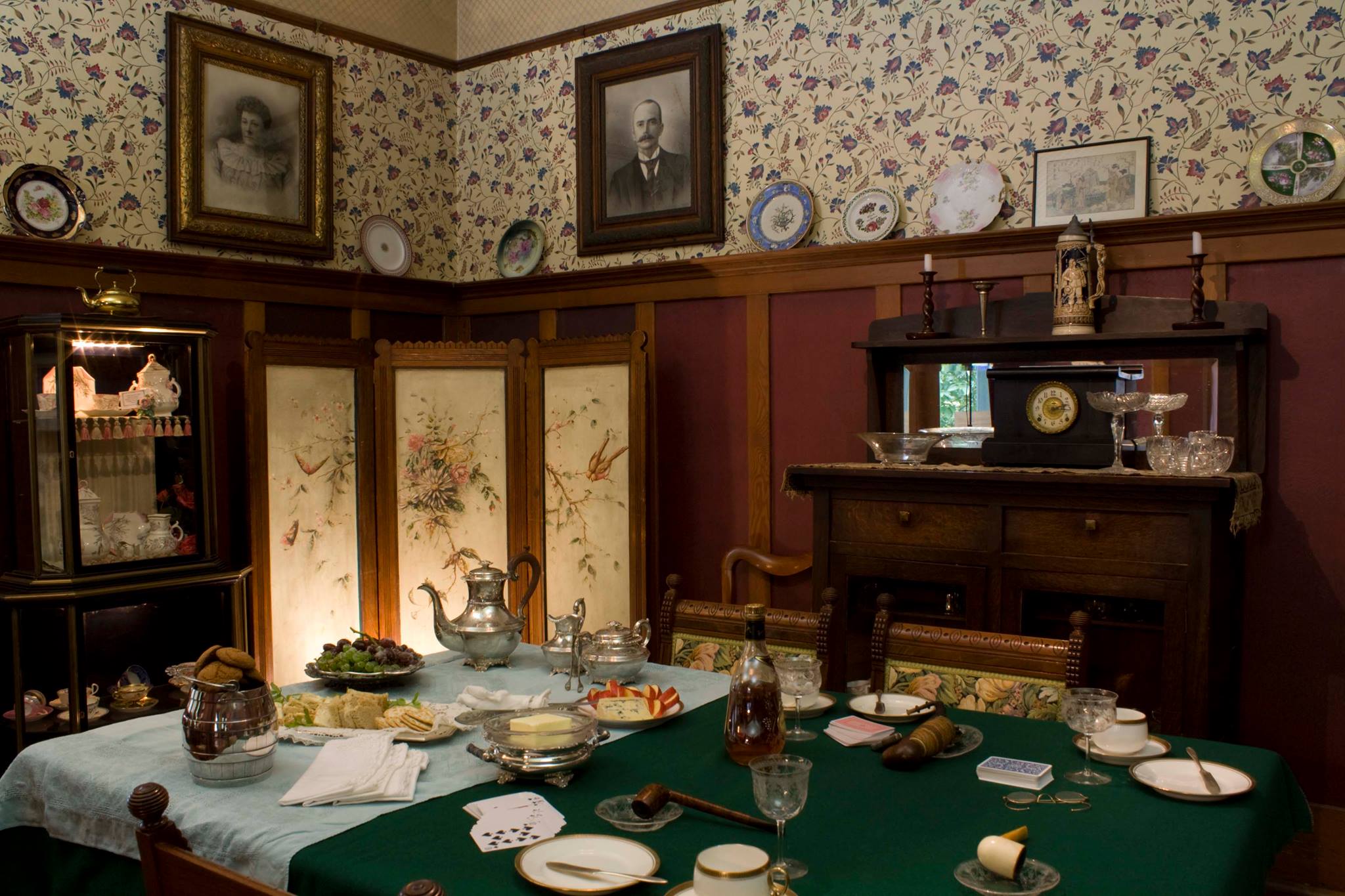

Inside the Roedde House Museum. Photo by Sara Hepper, via Roedde House Museum.
UBC Department of History professor Dr. Benjamin Bryce was awarded an Advancing Community Engaged Learning Grant from the UBC Centre for Community Engaged Learning for his project entitled “Public History and Community Engagement at the Roedde House Museum”.
The grant will be used to mobilize the research of undergraduate students in HIST 403C: Migration in the Americas, and help them share their research in a series of public facing projects. The course focuses on developing new skills to conduct or disseminate research while working with the Roedde House Museum in Vancouver’s West End. Students are encouraged to explore modes of dissemination beyond the traditional essay, including podcasts, museum exhibits, blogs, and Wikipedia articles.
Community Engaged Learning pedagogy and principles
HIST 403C anchors itself in the discipline of history through archival research and a focus on “public history”, which refers to engagement with the public’s interpretation of the past. It is community driven: students have met with the directors of the museum and seek to create projects that cater to the public (visitors, school groups) that the museum serves. It is also community driven in that student researchers are engaging with various immigrant and ethnic communities and creating a platform for people to share their stories. Students are learning from these various communities, and student projects and the platform they create is done so in a reciprocal dialogue with those communities. Finally, parts of the course and the community engagement encourage critical reflection. Students have to write an essay that reflects on four experiences they had in the course, and a seminar is dedicated to discussing the narrative currently presented at the museum and asks students to reflect on how their research and dialogue with community partners could differ.
Impact on student learning
The course seeks to have a positive and lasting impact on student learning. The main beneficiaries are these 17 students, but support from the CCEL fund will be sustained long into the future. The course seeks to give students skills to translate their humanities education into tangible work experience, narrowly in the heritage sector but broadly in research, project management, writing and publishing, and community engagement. Most student projects, when they agree and when consent is given by community partners, will be shared on the HIST 403C course website and some projects will also be further disseminated through the Roedde House Museum in the form of an exhibit or on the museum’s podcast channel.
Structural support for the growth or sustainment of community engaged learning practices or initiatives
The course website and CCEL funding will serve as a model for future community engagement in other History courses. Keeping a public record through the website in particular will offer a model for best practices of community engagement in other “public history” courses offered in the future. Further, diversity is at the core of this community-engaged course. It focuses on the voices of migrants and the role of ethnic and racialized communities in making Vancouver. Through the combination of independent archival research and public-facing deliverables, students will bring to light dozens of figures, groups, events, and actions that have too often been swept away from both popular and academic understandings of our city’s past.


